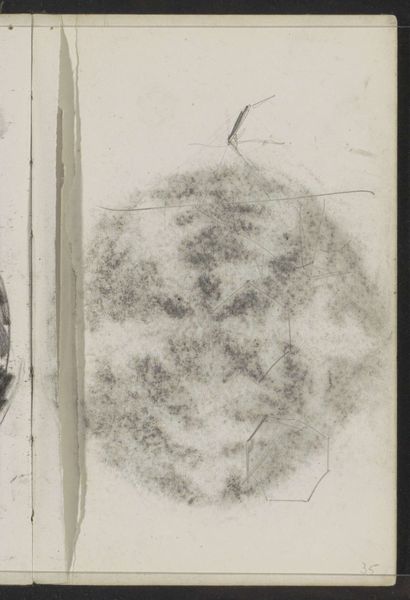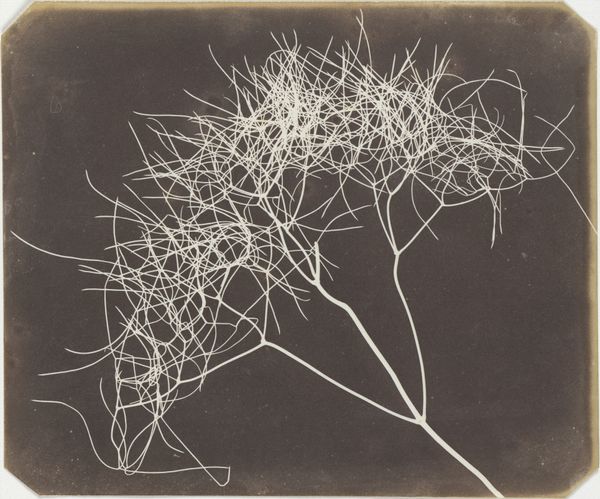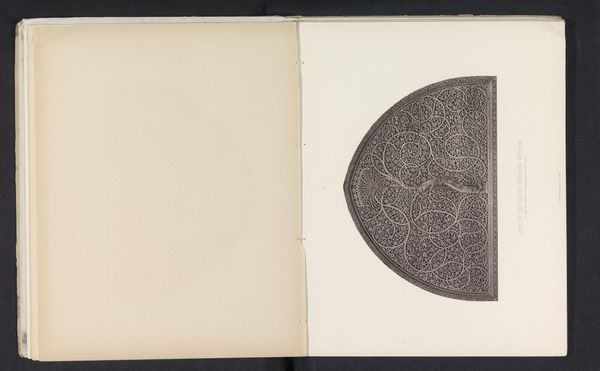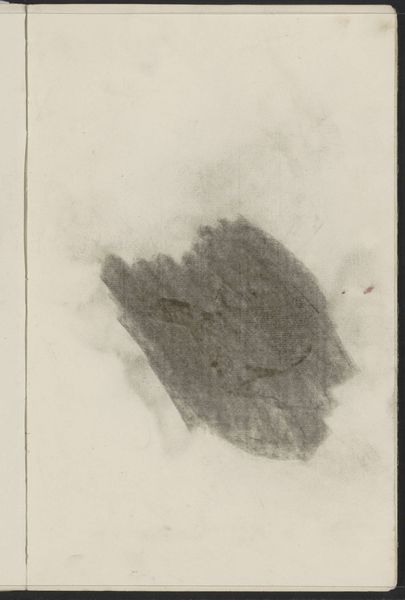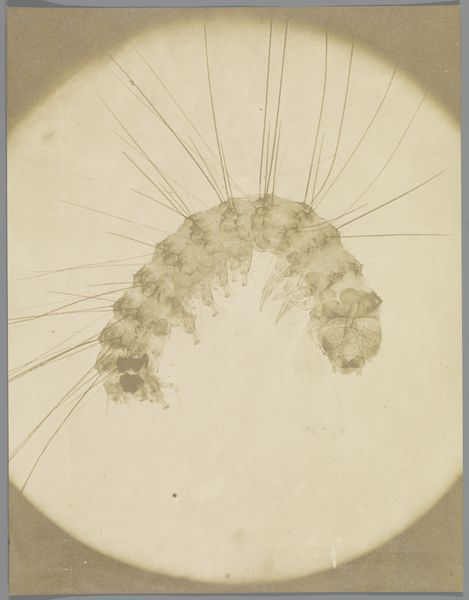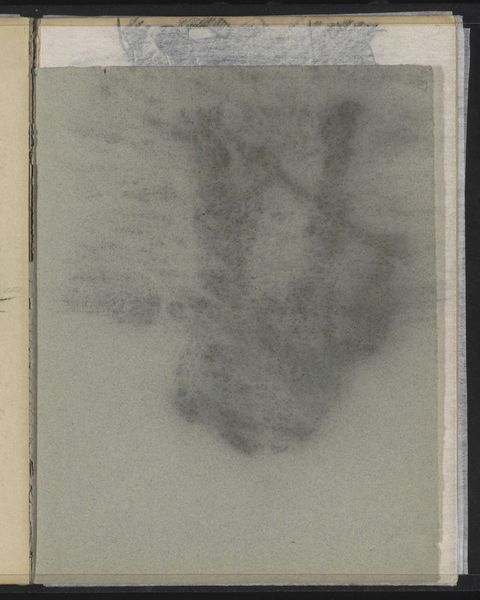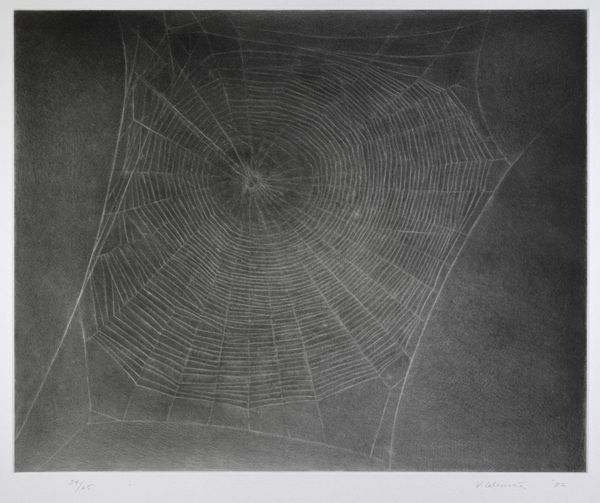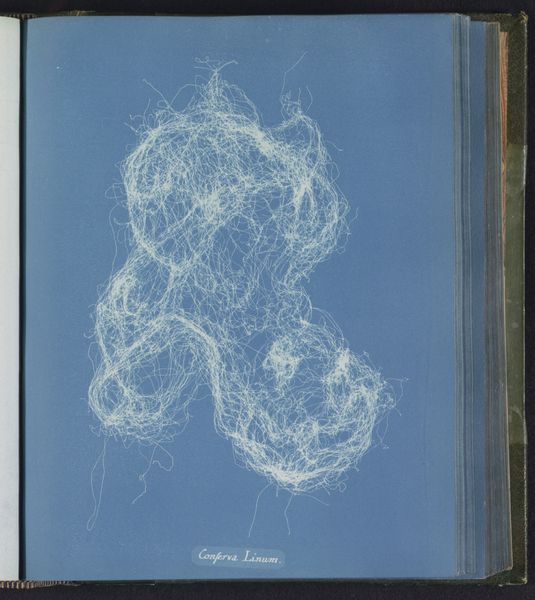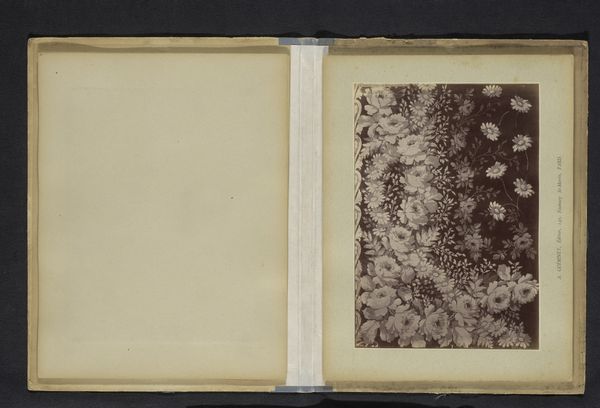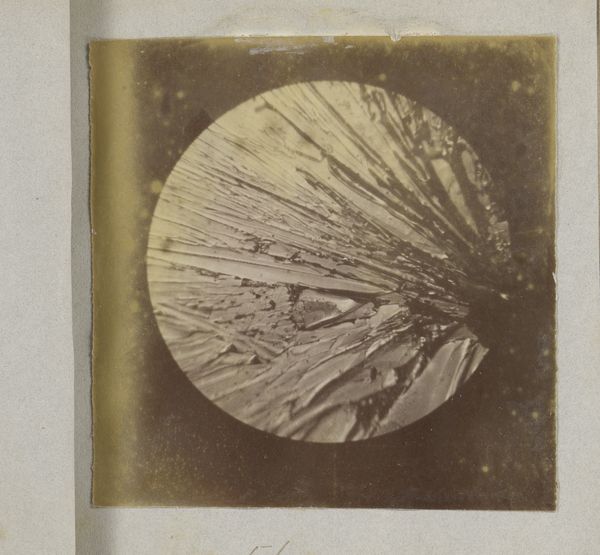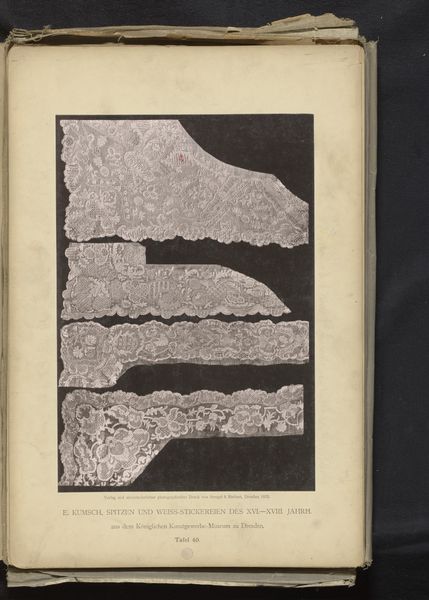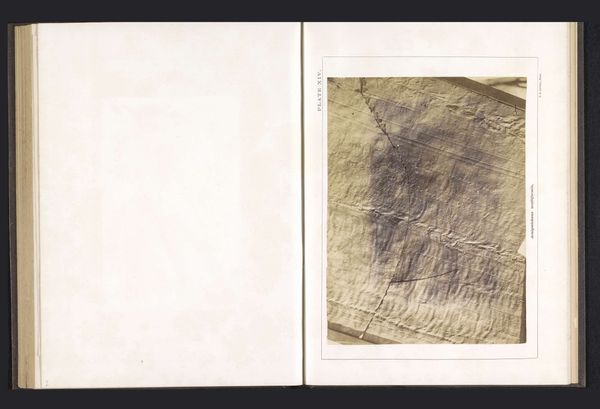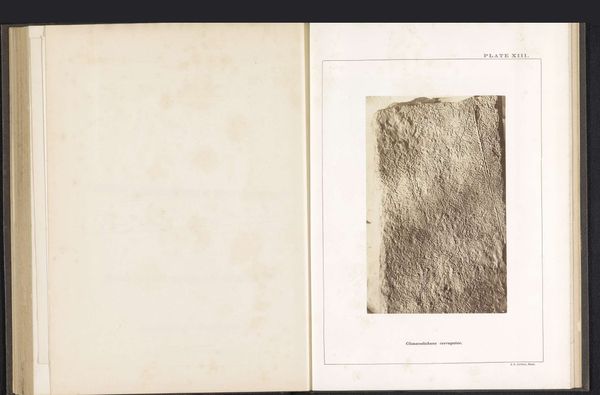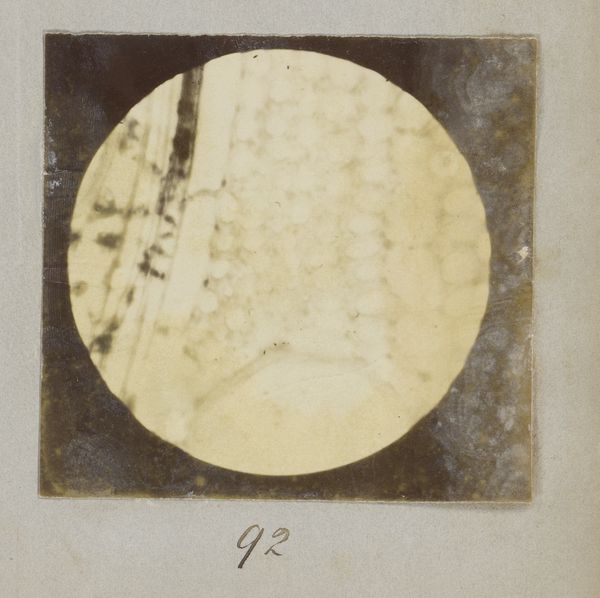
Dimensions: image: 454 x 355 mm
Copyright: © William Turnbull. All Rights Reserved, DACS 2014 | CC-BY-NC-ND 4.0 DEED, Photo: Tate
Editor: Here we have William Turnbull's "Head" from the Tate Collection. It's a print, quite striking in its raw texture and geometric overlay. What can you tell me about it? Curator: Let’s consider the process. This isn't about illusion; it emphasizes the physical act of making. See how the lines are etched? What does that labor-intensive process say about value, about mass production versus unique creation? Editor: So you're suggesting the *making* is part of the message? Curator: Precisely. The "head" becomes almost secondary to the materiality and the repetitive, physical work involved. Consider the social context, too: was Turnbull commenting on the industrialization of art or the commodification of the human form? Editor: That gives me a lot to think about. I hadn't considered the process as being so central to understanding the work itself. Curator: It's a shift from seeing art as representation to understanding it as a product of labor and material choices.
Comments
Join the conversation
Join millions of artists and users on Artera today and experience the ultimate creative platform.
tate 8 months ago
⋮
The most persistent motif in Turnbull's work between 1950 and 1957 was the head, which he treated both in two and three dimensions and in relief. This motif permitted direct mark-making without the complications of any search for subject matter. It was a means of combining emotional detachment with material immediacy. Like many of Turnbull's paintings of heads made at the same time this monotype asserts both the flatness of the image and the clarity of each of the individually scored lines by which it is animated. Gallery label, August 2004
